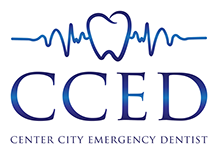Whether you go through a wisdom teeth removal procedure or undergo a dental implant surgery, it’s incredibly important that you take the correct measures to heal quickly and appropriately. Our current healthcare systems usually perform quite painless surgeries that place even more emphasis on the recovery process. Below, are five tips to more effectively recover following an oral procedure:
Medication
After you’ve undergone oral surgery, it’s imperative that you take any medications that you’ve been prescribed by your surgeon or dentist. Antibiotics are incredibly important in helping to prevent infections following a procedure. If you aren’t prescribed painkillers from your healthcare professional, find out whether or not it’s safe for you to take over-the-counter painkillers such as ibuprofen. Abstain from taking Aspirin, though, since it’s known to make your blood thinner, which will result in more bleeding.
Refrain from Brushing
Considering that you might have undergone oral surgery, you might want to do everything you can do prevent having to go through another procedure again any time soon. Not just yet, though—make certain that the area of your mouth heals correctly before you start brushing your entire mouth again. If you just can’t avoid brushing altogether, then its advised that you only brush the other regions of your mouth that aren’t in process of healing—or else you might cause bleeding. A saltwater rinse is normally a recommended alternative method of cleaning your mouth following an oral procedure.
Appropriate Diet
Hard foods will usually lead to discomfort in those individuals that are only a few days past their oral surgery procedure. Surgeons and dentists suggest that you remain true to a strictly soft food/liquid diet to avoid aggravating the sensitive regions of your mouth. Avoid having to deal with additional pain by carefully chewing soft foods and sipping on liquids. As much as you might want to eat the hard foods that you’re used to, realize that you’ll end up causing yourself greater discomfort.
Downtime
Whenever anybody undergoes a medical procedure, it’s imperative that they take the appropriate amount of time to rest and recover. As much as you might feel lazy or unproductive while resting, you must acknowledge that you’re helping yourself rebound from the surgery at a faster pace. Even though you might not view an oral procedure as serious as you might other surgeries, it’s necessary that your body has as much energy as possible to channel into the healing process. Take the rest of the day off from work or school after the procedure, and even consider requesting additional days off, or simply working from home.
Listen to the Doc
Don’t disregard what the doctor says as being overly cautious and only applicable to the most serious of cases. By acknowledging your doctor’s advice and applying it to your recovery process, you’ll ensure that the treatment is effective and begins to work as expected. Consider that their instructions are most likely the result of many years of experience. The surgeons and dentists understand what patients will have to go through following a procedure, which is why you should always follow the advice that they provide in order to recover quickly.
Take the appropriate measures to have a speedy and effective recovery following an oral procedure. By taking into consideration the mentioned tips, you’ll ensure a smoother post-op experience. Contact experts, such as Center City Emergency Dentist, to undergo emergency wisdom teeth removal in Philadelphia, PA or any other surrounding area. The experts also perform emergency root canals and tooth abscess treatments in Philadelphia, as well.
